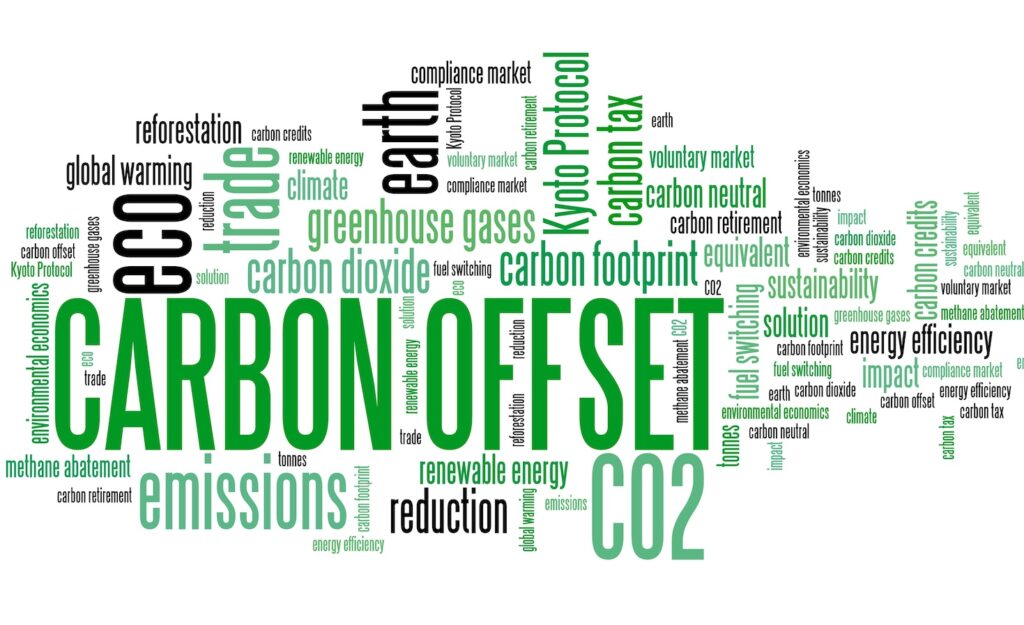The Biden administration has issued seven new principles for voluntary carbon markets, signed by top federal climate advisers, and the cabinet secretaries for the Department of Agriculture, Department of Energy and U.S. Treasury.
The principles, published May 28, acknowledge that the reliability of CO2 offset claims is a legitimate concern but nonetheless state that carbon market investments can “drive significant progress” toward U.S. climate goals.
Carbon markets enable corporations to buy credits that pay for projects that reduce or remove greenhouse gases, such as the planting of new forestry. Buyers can then count those credits toward their own CO2 reduction goals. The market was valued at close to $2 billion in 2023, according to BloombergNEF research.
The seven new principles are:
Carbon credits should meet credible standards and represent “real” decarbonization.
Activity funded by credits should avoid environmental and social “harm.”
Companies should focus on CO2 reductions in their own value chains.
Companies should publicly report purchased and retired credits.
Credits “should accurately reflect the climate impact of retired credits and should only rely on credits that meet high integrity standards.”
Buyers should continue to “improve market integrity.”
In the longer run, buyers and policymakers should “seek to lower [market] transaction costs.”
The principles, which aren’t legally binding, are meant to spur the development of clearer “incentives and guardrails” for buyers, offset project developers and crediting agencies.
Carbon credits are seen by supporters as crucial for addressing Scope 3 emissions from corporate supply chains, which companies can’t directly reduce, and for funding climate-mitigation programs in emerging economies.
Over the past two years, however, research has shown that some credits aren’t as effective at decarbonization as promised. One investigation found that 90 percent of credits issued by the largest credit certifier did not fund any actual carbon reduction.
“In too many instances, credits do not live up to the high standards necessary for market participants to transact transparently and with certainty that credit purchases will deliver verifiable decarbonization,” the White House said in a fact sheet.
A call for ‘high integrity’ carbon credits
To counter this, standards bodies and corporations are pushing for “high integrity” credits. The new White House principles offer a strong endorsement of that approach.
A “high integrity” credit funds action that would not otherwise have happened, accounts for emissions reduction or removal claims that will stand the test of time, and can be measured and verified independently, according to the White House. A shift to higher quality could restore trust in markets and drive purchases of 5.1 billion credits annually by 2050, according to BloombergNEF.
“While companies’ first priority must always be to make rapid cuts to their own emissions, buying high-integrity credits allows them to go further and take responsibility today for emissions they cannot yet cut,” said Annette Nazareth, chair of the Integrity Council for the Voluntary Carbon Market. The Integrity Council has published guidance on how high integrity should be defined.
The new principles are a welcome development, but it will take more regulation to scale “gigaton-scale” investments in carbon removal projects, said Erin Burns, executive director of the nonprofit Carbon 180, which advocates for CO2 removal solutions. “Fundamentally, carbon removal is a public good,” Burns said.
Other jurisdictions that have announced similar principles include Finland, Ghana, Japan, Kenya, the U.K., the International Swaps and Derivatives Association, the Commodity Futures Trading Commission and the Monetary Authority of Singapore. The European Union uses a regulated emissions trading system.
An appeal to corporate buyers
The principles also urge standards bodies such as the Science Based Targets initiative to consider approaches that allow companies to count credits toward Scope 3 emissions reductions that they cannot otherwise reduce in the near term.
In April, SBTi said it would let companies use credits in this way, a plan that sparked a backlash within its own staff; more details are anticipated in July. SBTi declined to comment about the Biden administration’s new principles. Meanwhile, the organization this week published updates to its guidance for financial institutions setting science-based emissions reduction targets.
[Learn how companies are implementing climate transition action plans at GreenFin 24 (June 17-19, NYC), the premier event for sustainable finance professionals.]
>>> Read full article>>>
Copyright for syndicated content belongs to the linked Source : GreenBiz – https://www.greenbiz.com/article/white-house-issues-7-new-principles-restore-integrity-carbon-markets
